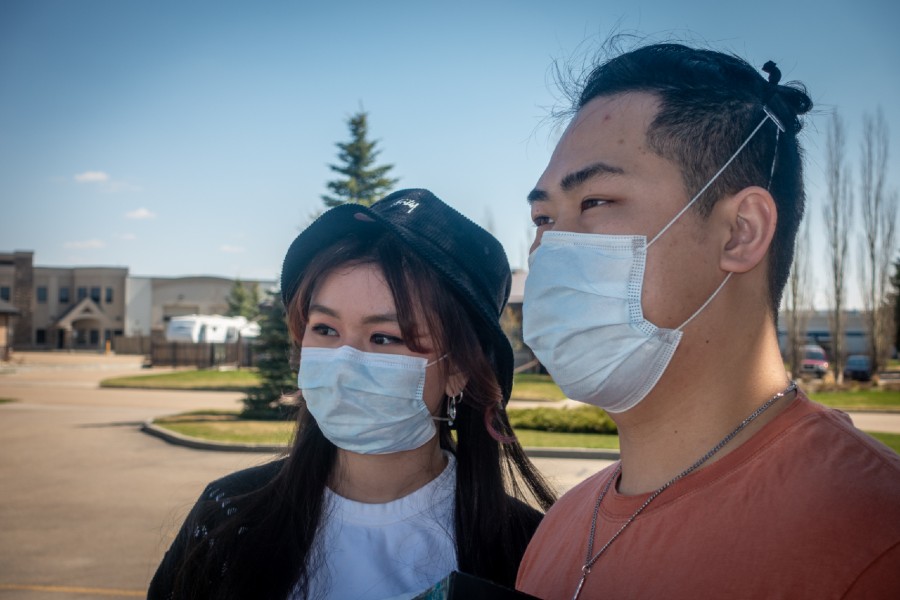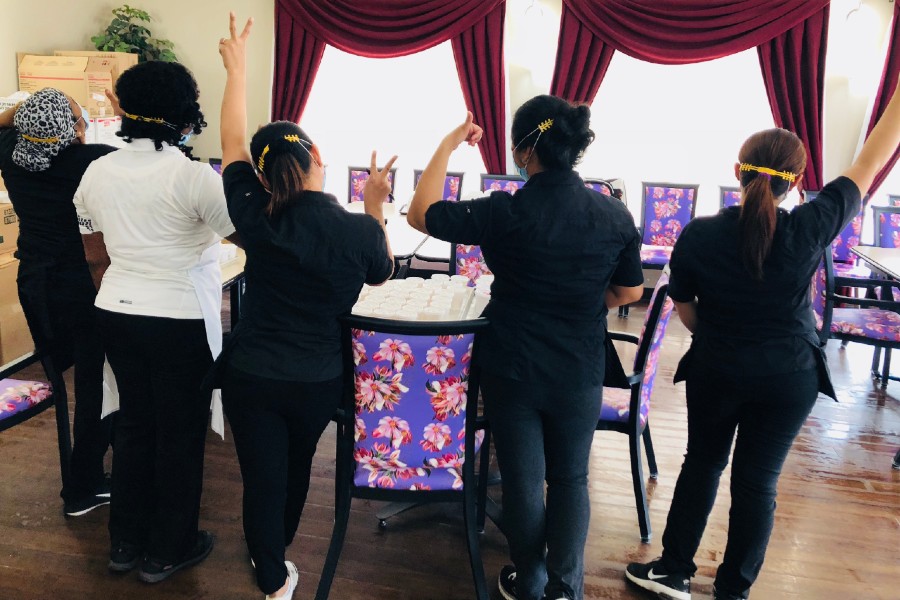A 3D-printed act of kindness
Two Italians and a boy scout, it could be said, are responsible for putting Jonathan Mui’s business plans on hold. In part, at least.
On March 17, the day that Alberta declared a public health emergency in response to the COVID-19 pandemic, The Verge posted an article about two young men who reverse-engineered a valve that is essential to fighting the disease in beleaguered Italian hospitals. It was in short supply, so they began making them on 3D printers.
Mui (Digital Media and IT ’20) had been using his own machines to print a micro home-agriculture system that he’d designed and was set to sell under his Agriolabs brand, but COVID-19 had disrupted the supply of a certain plastic filament he needed for the product.
The Italians got him wondering: Could he somehow put his machines to work helping Alberta in the meantime, using other available filaments?
That’s when one of his business mentors pointed out Quinn Callander, a 12-year-old British Columbia boy scout who’d posted a file for printing ear protectors. He was making them to spare local nurses the pain of mask elastics digging in behind their ears all day. Long-term use can actually break down skin, which has prompted health-care professionals to welcome creative solutions – including these slotted plastic pieces that sit comfortably behind the head to bear the strain.
Save the ears of health workers bro from r/HumansBeingBros
“He was printing about seven or eight at a time [and] was able to produce about 80,” says Mui. “Then I thought, ‘Well, I have two printers, just sitting there and not doing anything.’”
After working out the kinks and optimizing his machines, Mui started ramping up production. It turns out that he’d have no choice. Following his own Reddit post about his plan, health reporter Su-Ling Goh (Radio and Television '98) covered it for Global Edmonton.
“At the beginning I thought I’d print a few hundred,” says Mui. “As soon as we were on the news, we got a ridiculous amount of requests.”
The project went not just viral, though, but communal. Goh asked him if there was anything viewers could do. The answer: donate funds to buy printing filament and get more ear savers into the hands, and onto the backs of heads, of frontline workers. Within a few hours, Mui set up a donation page on his website (“with my web skills from NAIT, I was able to do that”). Goh shared it.
“We probably got over 1,500 units worth of donation requests that day,” says Mui.
Producing ear savers has become an all-consuming task. Mui and his girlfriend, Denise Bermejo (DMIT ’20), began printing around the clock.
“We buckled down and got to work … setting alarms to harvest and start the next print, clean the print beds, swap rolls of filament, et cetera.”

They even delivered them after they were printed, along with hand-written notes of thanks for the work recipients were doing in the fight against COVID-19.
To date, thanks to about 50 donors, more than 11,000 ear protectors have made their way to health professionals at institutions including the Royal Alexandra, University of Alberta and Stollery Children’s hospitals, as well as to paramedics and staff at senior’s care facilities.
“We’re still packing orders,” says Mui. “The hardest part is probably the planning and logistics. We’re getting orders everywhere – from Reddit to Facebook to Twitter to Instagram. We’re trying to keep things organized and deliver things out.”
Initially, his plan was to keep up with those deliveries only until May. But with demand continuing, and increasing from not just Edmonton but across the country, ear protectors will continue to roll off Mui’s printers. Besides, proper filament is still proving elusive for Agriolabs’ reason for being, the microgreens grow boxes.
Nevertheless, Mui does plan to push on with his business – started when he was still a student with help from NAIT’s Mawji Centre for New Venture and Entrepreneurship – as the times allow.
Sometime in May, he expects to launch a Kickstarter campaign. In a way, it will echo his current philanthropic effort, in that it will support ways to secure filament, whether that means buying it once it becomes available again or even finding a way to make it themselves.
So uh. It's been a while since we publicly updated everyone on our ear savers project. 1. Yes, we're still making them, so many in fact that as of today, we've produced, packed, and delivered/shipped over 3000 ear savers. 2. Yes, we're shipping Canada wide, we're sending some to New Brunswick pretty soon here. 3. Yes we're still going, donations and orders can be made at agriolabs.ca/covid19 , and frontline workers can request donations at: hello@agriolabs.ca (P.s. if you make an order for yourself, and you're a frontline worker, please tell us in the notes so we can prioritize you. Otherwise please be patient while we prioritize those who are saving our butts) 4. Yes the blog will be updated, but this is last week of school and we're trying to graduate. If you wanna see what we've got so far, agriolabs.ca > Blog 5. Are our robots tired? No, they're robots silly. But they have been going 24/7, so I'm gonna go grease some gears now.
A post shared by Agriolabs (@agrio.labs) on
He’ll likely find a way to make his business work, while supporting frontline pandemic workers, even if he’s tired. You can see it in his eyes on some of his social media posts, and read it between the lines of updates that suggest a doggedness that probably isn’t very good for a body. But Mui and Bermejo know that the people they’re trying to help are tired too, probably more tired than they’ve ever been.
“I saw nurses online commenting that after 12 hours it feels like your ears are slowly being sawed off,” he says. “When you take off your mask, it feels like your ears have been permanently moved.”
Pivoting during the pandemic, was “our little way of doing what we can. Our ear savers aren’t saving lives, but they’re saving ears.”
